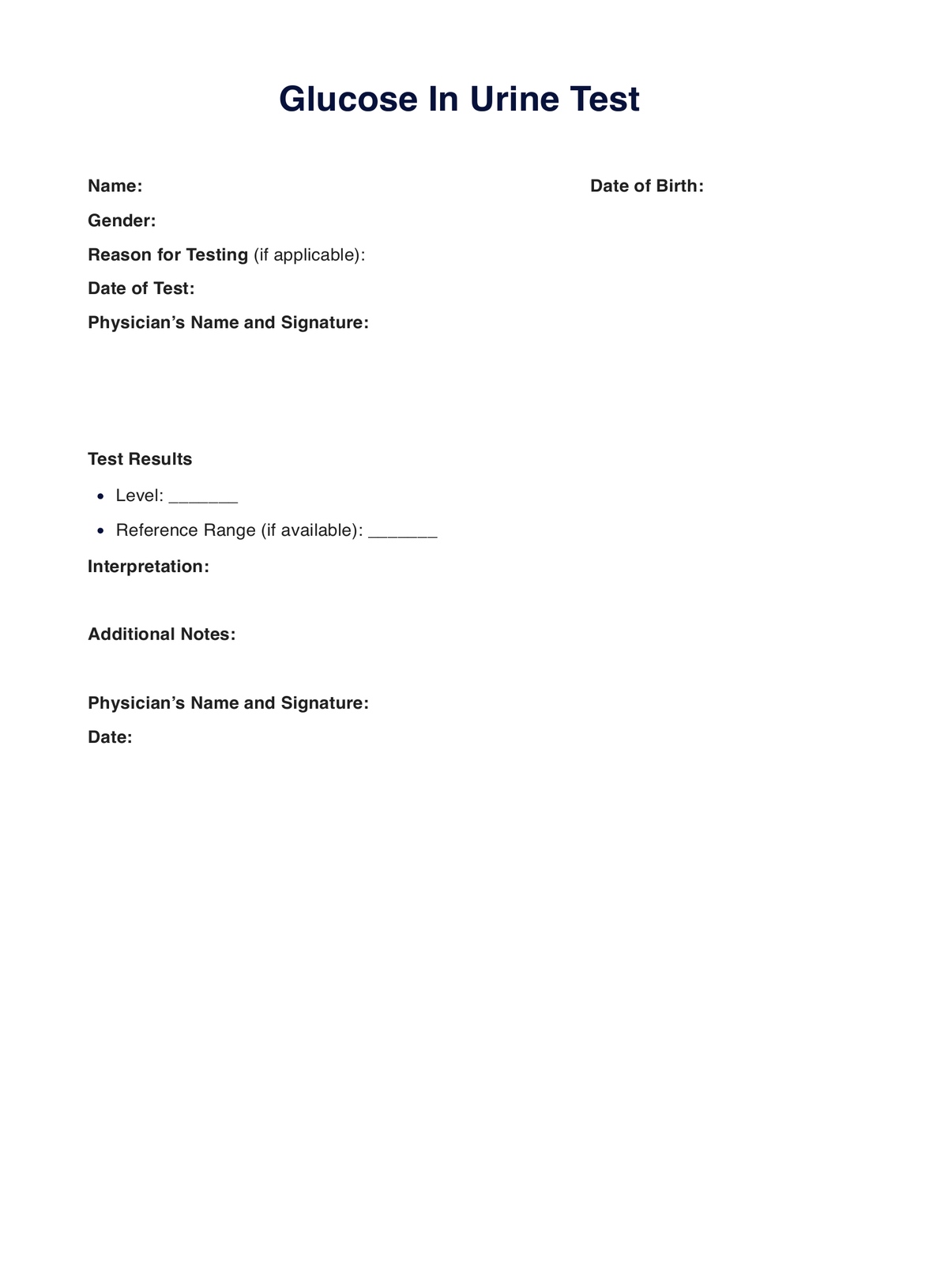Healthcare providers like general practitioners, nurses, and even specialists such as an endocrinologist can request a glucose urine test when conducting a routine check-up or prenatal screen and monitoring their patient’s glucose levels for diagnosis or management.

Glucose in Urine
Know more about the glucose in urine test, its importance, the results’ interpretation, situations where you can request it, and more with our short guide.
Use Template
Glucose in Urine Template
Commonly asked questions
They are used when the patient is undergoing a urinalysis or cannot provide a sample for the glucose blood test.
Timelines will vary depending on the circumstances and the type of test used. However, generally, the collection time will only take a few minutes, while the analysis in a laboratory can take around 2-5 business days.
EHR and practice management software
Get started for free
*No credit card required
Free
$0/usd
Unlimited clients
Telehealth
1GB of storage
Client portal text
Automated billing and online payments











